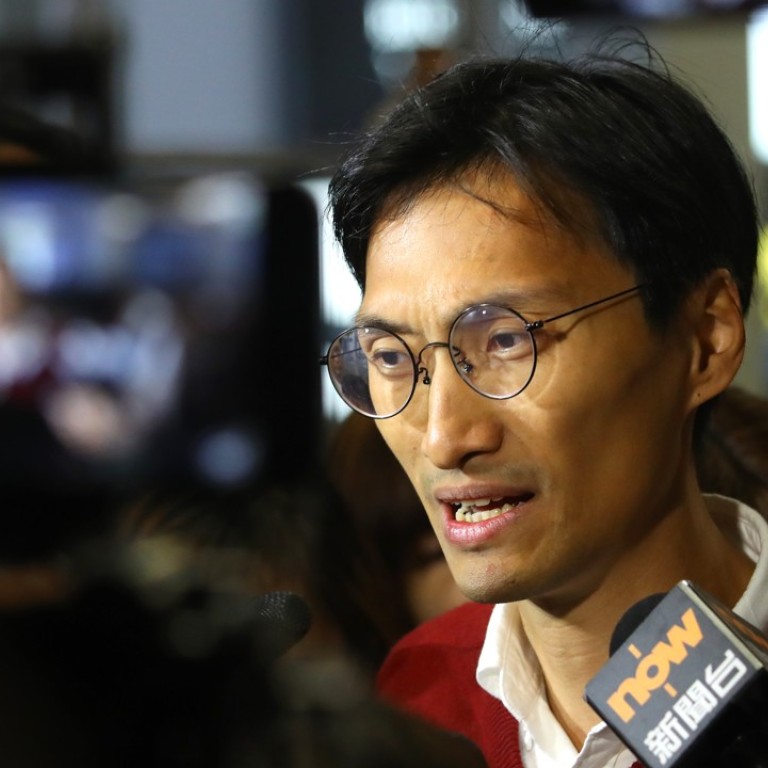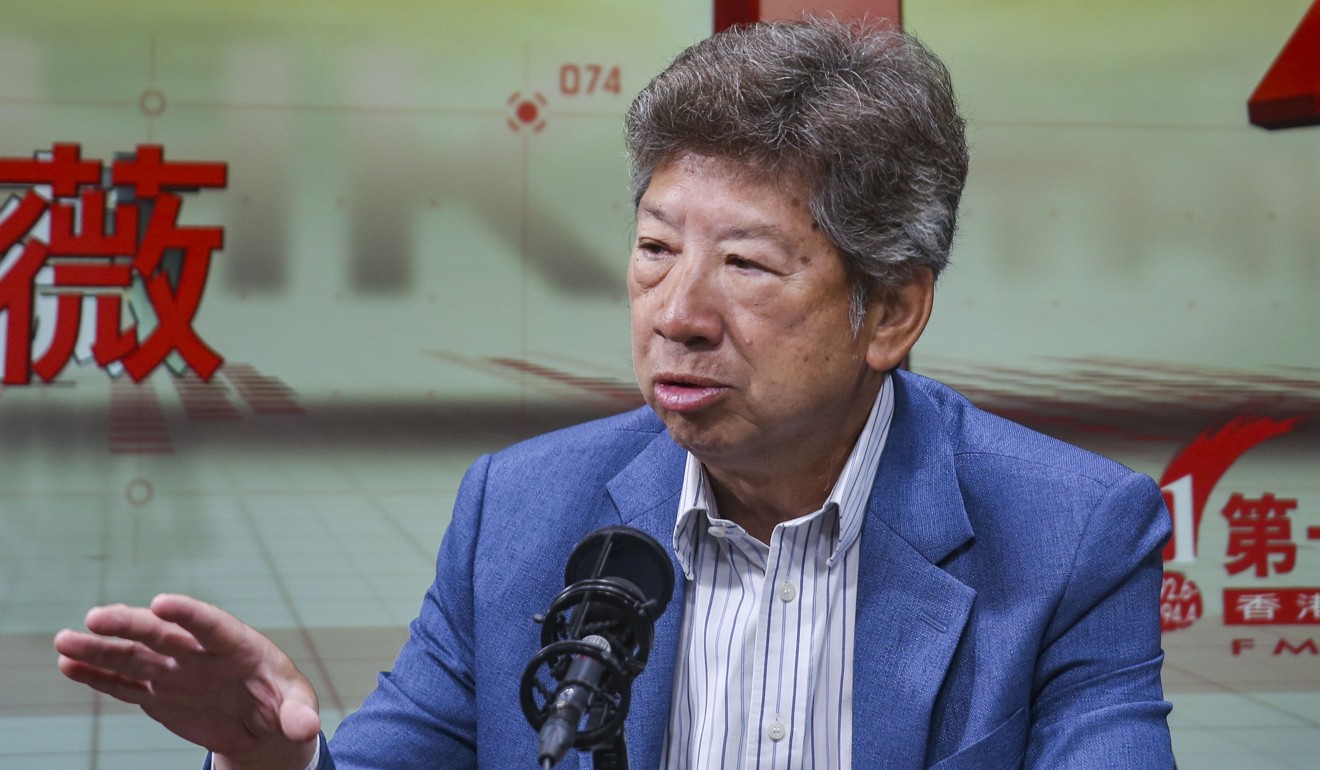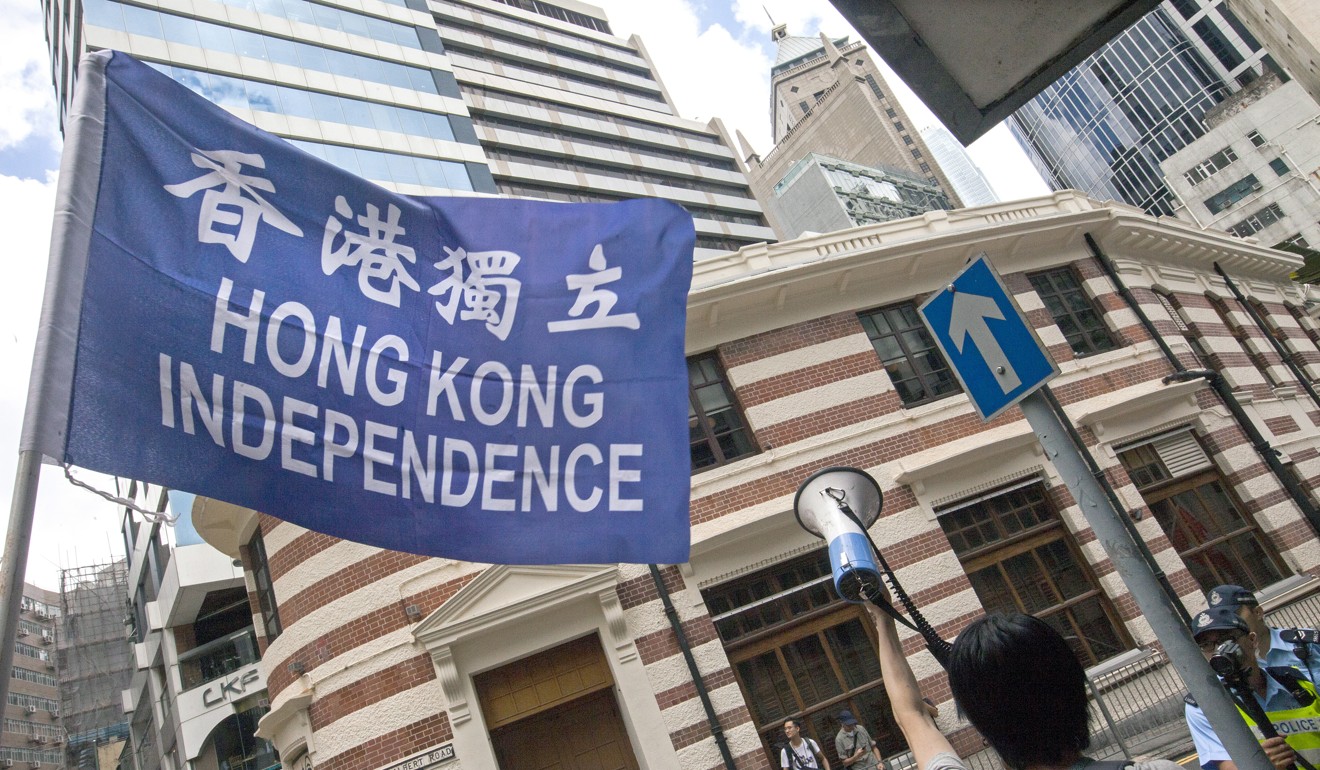
More questions for Hong Kong lawmaker Eddie Chu over pledge of allegiance to China ahead of village elections
- Chu asked to answer five additional political questions about Hong Kong’s status after submitting nomination form
- Exco member Ronny Tong calls Chu’s stance contradictory as lawmaker also defended right to advocate for Hong Kong independence
Lawmaker Eddie Chu Hoi-dick faced more questions from election officials on his stance on Hong Kong independence and self-determination on Wednesday, despite pledging allegiance to Chinese sovereignty in his previous reply.
Chu, who hopes to participate in the rural representative election for the non-indigenous villagers’ head post at Yuen Kong Sun Tsuen, in Yuen Long, was asked to answer five additional political questions about Hong Kong’s status after submitting his nomination form last Thursday.
The localist, who has in the past advocated for the city’s self-determination, said he was already a serving lawmaker.

“I have taken an oath to uphold the Basic Law and pledged allegiance to the Hong Kong Special Administrative Region,” he said on Tuesday, describing the additional questions as “political screening”.
However, Chu received a letter from the officer again on Wednesday afternoon asking for his clarification on his political stance, pressing him on whether he supported Hong Kong independence as an option for self-determination.
Justice department advised official who barred Lau Siu-lai from by-election
“Do you agree that a candidate of the rural representative election cannot advocate ‘Hong Kong independence’ in any form?” asked the second question listed.
Chu was told to reply within four hours, or by 8pm on Wednesday.
In response, Chu said the officer’s extra questions not only required him to be against independence, but also opposed to other candidates advocating such ideas.
He believed the requirement had violated the freedom of speech as safeguarded by the Basic Law and the Hong Kong Bill of Rights Ordinance, and gone beyond the scope of the Rural Representative Election Ordinance.
“I don’t think you have the power to raise such questions, [which are] irrelevant to approving my candidacy,” he wrote.
On Wednesday morning, executive councillor Ronny Tong Ka-wah, who is also a barrister, said Chu’s pledge was contradictory as he had also defended the right to advocate for independence.

Tong questioned Chu’s stance on a radio programme.
“Upholding the Basic Law does not just mean accepting it … Upholding means to positively support and promote it instead of just knowing its existence.”
The Exco member said it would be contradictory if one person could advocate self-determination and independence on the one hand and uphold the Basic Law on the other hand.
He said Chu might not be able to persuade election officials or even the court that he would uphold the Basic Law.
Let lawyers decide who can run for election, says Bar chairman
The lawmaker in turn said he was concerned and sad about political screening for a village election and that the “red line” was extending.
“The sad thing is election officials can ask [political questions] if they feel it is necessary,” he said, adding that questions asked in the past had been about personal background, such as whether the person was a foreign national or had been bankrupt.
But Tong said such a requirement was not strict or uncommon.

“Strictly speaking, all Hong Kong residents need to uphold the Basic Law, from the perspective of bearing the responsibility of political ethics,” he said.
Under Section 24 of the Rural Representative Election Ordinance, candidates have to make a declaration that they will uphold the Basic Law and pledge allegiance to the Hong Kong Special Administrative Region. A separate clause states that the returning officer can question the candidates in deciding their eligibility.
But rural representatives do not fall under the scope of Basic Law Article 104, which states that the chief executive, principal officials, Executive Council and Legislative Council members, and judges and other members of the judiciary must swear to uphold the Basic Law and swear allegiance to the Hong Kong Special Administrative Region.
Lawmaker Priscilla Leung Mei-fung, a member of the Basic Law Committee, said it was a disputable legal issue.
“Electoral officers for sure have the right to ask candidates questions. But it became disputable when talking about the power of disqualifying them,” Leung said.
Nominations closed last Thursday, with the Home Affairs Department receiving 1,858 in total. There are 1,540 village representative seats in total.
After vetting and verifying the eligibility of the candidates, the returning officers will publish a gazette notice of valid nominations on December 6.

